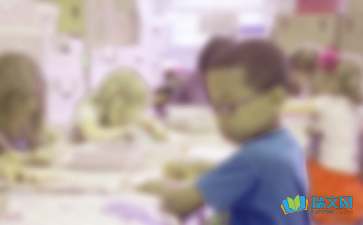Three hundred years ago, an English poet,Alexander Pope, wrote the linesNature, and Nature's lawslay hid in sight;God said, let Newton be! Andall was light.
This momentous epitaph came as an encouraging torch to mankind who had long wandered in the valley of ignorance. It came as an exciting aurora leading to the "Age of Reason."
But three centuries later, even the "Mansion of Reason" has been furnished and stabilized (and partly reconstructed, we admit) by more "Newtons".We have to face the tragic fact that came as an exciting aurora leading to the "Age of Reason. "
But three centuries later, even the "Mansion of Reason" has been furnished and stabilized (and partly reconstructed, we admit) by more "Newtons".We have to face the tragic fact that mankind, to some extent, is still ignorant.
Pm not dramatizing the appalling conditions by citing the following examples, but being serious.
It once struck me as odd to hear that some physics majors (fortunately not from Fudan) were discouraged from studying the fine structure of equipments during the experimental classes because their laboratory work would be graded according to the time length they spent.
It did make me feel indignant at the fact that some biology majors were still encouraged to draw what they should theoretitally observe instead of what they had actually seen with their
It sounds like medieval education but it is true now in some universities in this world.
It has been three hundred years since the "Age of Reason"began; however, some essential reasons are now still blowing in the wind, rather than taking root in all men's hearts.Among them is the crucial ideathe importance of scientific curiosity.
Without curiosity, students were forced to swallow innumerablefacts,confess their validity and forgetthem after exams. Without curiosity, learners were bereft of the freedom to imagine, the ability to ask questions and the chances to modify the old theories. Without curiosity, how could our civilization,the Age of Reason, make progress?
I wrote here today to my readers, that in spite of the conditions of the moment, I still have a dream. It is a dream of waking up the rational curiosity which inhabits all human beings.
I have a dream that one day university labs will be open for 24 hours to students from any department to testify their own hypotheses and make their own inventions.
I have a dream that one day a professor and a student, or a "boss" and a researcher, will be able to sit down together at the table of equality to discuss problems like classmates or brothers.
I have a dream that one day more "why" questions than "how" questions will be raised by common users of computers or other home facilities so that they will transcend the "press-the button" satisfaction and become expert DIY ers.
It is the dream once carried out by Descartes, Newton and Maxwell in the way of their own times. And if mankind has not lost his creativity, he should keep it up.
If we keep up this dream, we will live out the true meaning of Montaignesque motto, "We are born to seek and quest after truth." Not only that, the dream will make us know that we believe what is worth believing and we doubt what deserves skepticism. It is curiosity that enables us to tell the true from the false.
If we keep up this dream, our material life will no longer be spoiled by unscientific administrations and our spiritual world will no longer be timely intruded by the opium of evil cults because the man and the society will then be armed with reason.
If we keep up this dream and stretch out the antennae of curiosity to explore the creation, we will be conveying new meanings of Shakespeare's lines: "beauty of the world, paragon of animals !"
版权声明
本站文章收集于互联网,仅代表原作者观点,不代表本站立场,文章仅供学习观摩,请勿用于任何商业用途。
如有侵权请联系邮箱tuxing@rediffmail.com,我们将及时处理。本文地址:https://www.wuliandi.com/zuowen/huatizuowen/chengchangzuowen/202201/1957215.html








